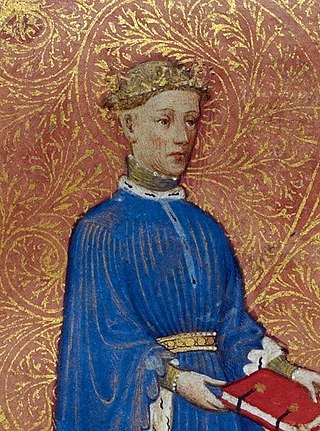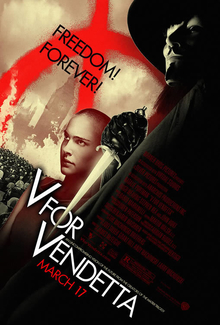| |||||||||||||||||||||||||||||
| |||||||||||||||||||||||||||||
Municipal elections were held in the Czech Republic on 18 and 19 November 1994. Voter turnout was 60.68%. [1]
| |||||||||||||||||||||||||||||
| |||||||||||||||||||||||||||||
Municipal elections were held in the Czech Republic on 18 and 19 November 1994. Voter turnout was 60.68%. [1]
| Party | Votes | % | Seats |
|---|---|---|---|
| Civic Democratic Party | 37,872,640 | 29.56 | 7,289 |
| Communist Party of Bohemia and Moravia | 17,413,545 | 13.59 | 5,837 |
| Czech Social Democratic Party | 10,935,889 | 8.54 | 1,628 |
| Christian and Democratic Union – Czechoslovak People's Party | 9,260,542 | 7.23 | 7,616 |
| Civic Democratic Alliance | 8,973,999 | 7.00 | 615 |
Fair use is a doctrine in United States law that permits limited use of copyrighted material without having to first acquire permission from the copyright holder. Fair use is one of the limitations to copyright intended to balance the interests of copyright holders with the public interest in the wider distribution and use of creative works by allowing as a defense to copyright infringement claims certain limited uses that might otherwise be considered infringement. Unlike "fair dealing" rights that exist in most countries that were part of the British Empire in the 20th century, the fair use right is a general exception that applies to all different kinds of uses with all types of works and turns on a flexible proportionality test that examines the purpose of the use, the amount used, and the impact on the market of the original work.

The First Amendment to the United States Constitution prevents the government from making laws that: regulate an establishment of religion; prohibit the free exercise of religion; abridge the freedom of speech, the freedom of the press, the freedom of assembly, or the right to petition the government for redress of grievances. It was adopted on December 15, 1791, as one of the ten amendments that constitute the Bill of Rights.

The Fourteenth Amendment to the United States Constitution was adopted on July 9, 1868, as one of the Reconstruction Amendments. Usually considered one of the most consequential amendments, it addresses citizenship rights and equal protection under the law and was proposed in response to issues related to formerly enslaved Americans following the American Civil War. The amendment was bitterly contested, particularly by the states of the defeated Confederacy, which were forced to ratify it in order to regain representation in Congress. The amendment, particularly its first section, is one of the most litigated parts of the Constitution, forming the basis for landmark Supreme Court decisions such as Brown v. Board of Education (1954) regarding racial segregation, Roe v. Wade (1973) regarding abortion, Bush v. Gore (2000) regarding the 2000 presidential election, and Obergefell v. Hodges (2015) regarding same-sex marriage. The amendment limits the actions of all state and local officials, and also those acting on behalf of such officials.

The Supreme Court of the United States (SCOTUS) is the highest court in the federal judiciary of the United States. It has ultimate appellate jurisdiction over all federal court cases, and over state court cases that involve a point of U.S. Constitutional or federal law. It also has original jurisdiction over a narrow range of cases, specifically "all Cases affecting Ambassadors, other public Ministers and Consuls, and those in which a State shall be Party." The court holds the power of judicial review, the ability to invalidate a statute for violating a provision of the Constitution. It is also able to strike down presidential directives for violating either the Constitution or statutory law. However, it may act only within the context of a case in an area of law over which it has jurisdiction. The court may decide cases having political overtones, but has ruled that it does not have power to decide non-justiciable political questions.
U, or u, is the twenty-first and sixth-to-last letter and fifth vowel letter of the Latin alphabet, used in the modern English alphabet, the alphabets of other western European languages, and others worldwide. Its name in English is u, plural ues.

Henry V, also called Henry of Monmouth, was King of England from 1413 until his death in 1422. Despite his relatively short reign, Henry's outstanding military successes in the Hundred Years' War against France made England one of the strongest military powers in Europe. Immortalised in Shakespeare's "Henriad" plays, Henry is known and celebrated as one of the greatest warrior-kings of medieval England.

Thoroughgood "Thurgood" Marshall was an American civil rights lawyer and jurist who served as an associate justice of the Supreme Court of the United States from 1967 until 1991. He was the Supreme Court's first African-American justice. Prior to his judicial service, he was an attorney who fought for civil rights, leading the NAACP Legal Defense and Educational Fund. Marshall was a prominent figure in the movement to end racial segregation in American public schools. He won 29 of the 32 civil rights cases he argued before the Supreme Court, culminating in the Court's landmark 1954 decision in Brown v. Board of Education, which rejected the separate but equal doctrine and held segregation in public education to be unconstitutional. President Lyndon B. Johnson appointed Marshall to the Supreme Court in 1967. A staunch liberal, he frequently dissented as the Court became increasingly conservative.
Roe v. Wade, 410 U.S. 113 (1973), was a landmark decision of the U.S. Supreme Court in which the Court ruled that the Constitution of the United States generally protected a right to have an abortion. The decision struck down many abortion laws, and caused an ongoing abortion debate in the United States about whether, or to what extent, abortion should be legal, who should decide the legality of abortion, and what the role of moral and religious views in the political sphere should be. The decision also shaped debate concerning which methods the Supreme Court should use in constitutional adjudication.

Charles V was Holy Roman Emperor and Archduke of Austria from 1519 to 1556, King of Spain from 1516 to 1556, and Lord of the Netherlands as titular Duke of Burgundy from 1506 to 1555. He was heir to and then head of the rising House of Habsburg during the first half of the 16th century. His dominions in Europe included the Holy Roman Empire, extending from Germany to northern Italy with direct rule over the Austrian hereditary lands and the Burgundian Low Countries, and Spain with its possessions of the southern Italian kingdoms of Naples, Sicily and Sardinia. In the Americas, he oversaw both the continuation of the long-lasting Spanish colonization as well as a short-lived German colonization. The personal union of the European and American territories of Charles V was the first collection of realms labelled "the empire on which the sun never sets".

The term Greater Romania usually refers to the borders of the Kingdom of Romania in the interwar period, achieved after the Great Union. It also refers to a pan-nationalist idea.

V for Vendetta is a 2006 dystopian political action film directed by James McTeigue from a screenplay by the Wachowskis. It is based on the 1988 DC Vertigo Comics limited series of the same title by Alan Moore, David Lloyd, and Tony Weare. The film, set in a future where a fascist totalitarian regime has subjugated the UK, centres on V, an anarchist and masked freedom-fighter who attempts to ignite a revolution through elaborate terrorist acts, and on Evey Hammond a young woman caught up in V's mission. Stephen Rea portrays a detective leading a desperate quest to stop V.
In linear algebra, an eigenvector or characteristic vector of a linear transformation is a nonzero vector that changes at most by a constant factor when that linear transformation is applied to it. The corresponding eigenvalue, often represented by , is the multiplying factor.

The Netherlands men's national cricket team nicknamed "the Flying Dutchmen" is a team that represents the Netherlands in men's international cricket and is administered by the Royal Dutch Cricket Association.

HOK, formerly Hellmuth, Obata + Kassabaum and legally HOK Group, Inc., is an American design, architecture, engineering, and urban planning firm, founded in 1955.

A capacitor is an electronic device that stores electrical energy in an electric field by accumulating electric charges on two closely spaced surfaces that are insulated from each other. It is a passive electronic component with two terminals.

The Federal University of Technology Owerri (FUTO) is a federal government university in Owerri West, Owerri, the capital of Imo State, Nigeria. The university is bounded by the communities of Eziobodo, Ihiagwa, Obinze, Okolochi and Emeabiam. It is the premier federal university of technology in the South-East and South-South parts of Nigeria.
Socialist Alternative Future is a Trotskyist political party in the Czech Republic, founded in 1990 by students active in the events of the Velvet Revolution. It affiliated to International Socialist Alternative in 1994.

Municipal elections were held in the Czech Republic on 13 and 14 November 1998. A total of 62,412 seats were up for election, of which more than 30,000 were won by independent candidates- Voter turnout was 45.02%.

Severe acute respiratory syndrome coronavirus 2 (SARS‑CoV‑2) is a strain of coronavirus that causes COVID-19, the respiratory illness responsible for the COVID-19 pandemic. The virus previously had the provisional name 2019 novel coronavirus (2019-nCoV), and has also been called human coronavirus 2019. First identified in the city of Wuhan, Hubei, China, the World Health Organization designated the outbreak a public health emergency of international concern from January 30, 2020, to May 5, 2023. SARS‑CoV‑2 is a positive-sense single-stranded RNA virus that is contagious in humans.

Gen V is an American superhero television series, developed by Craig Rosenberg, Evan Goldberg, and Eric Kripke, serving as a spin-off of The Boys by Kripke, and based on The Boys comic book story arc "We Gotta Go Now" by Garth Ennis and Darick Robertson. The series serves as the third entry in The Boys franchise.